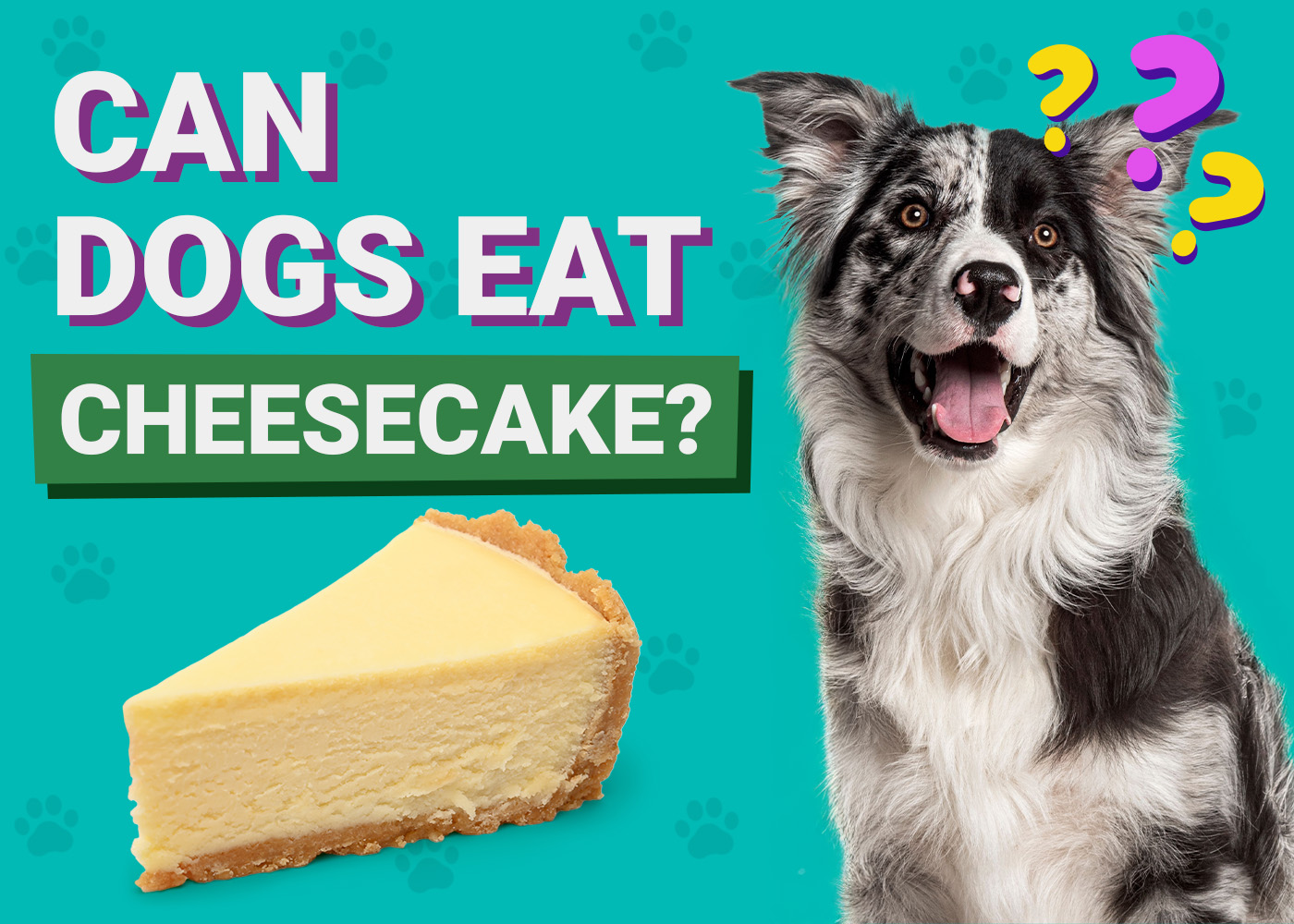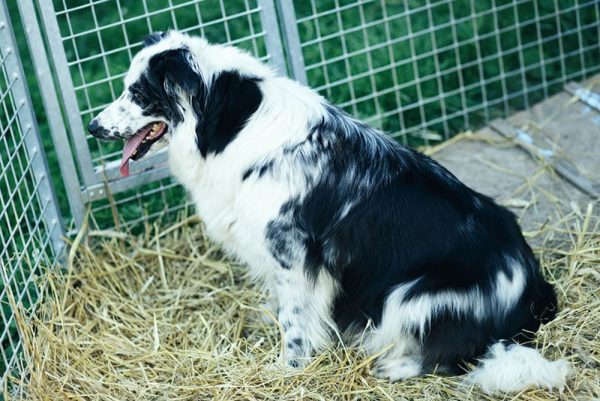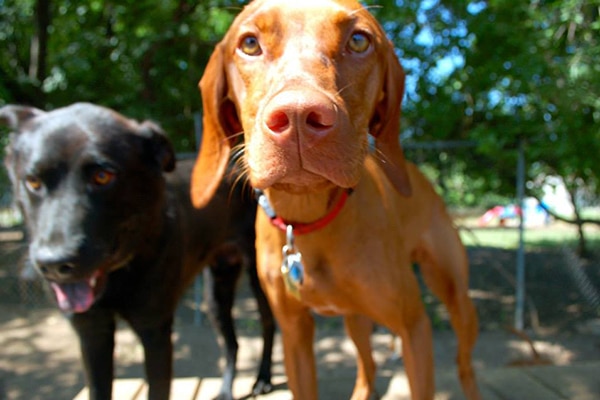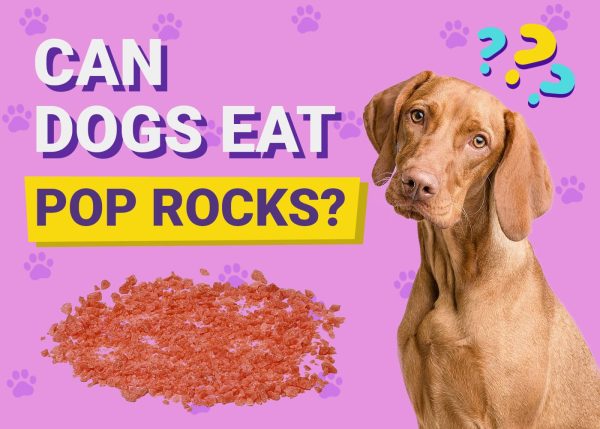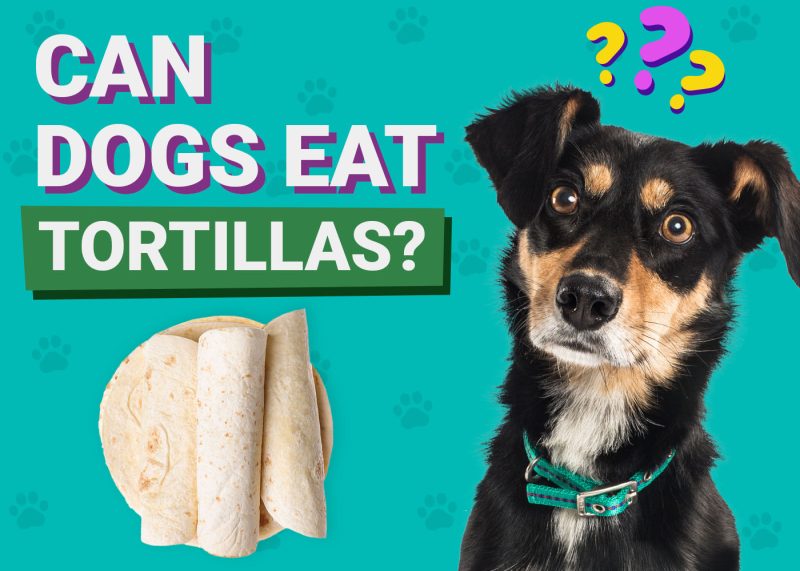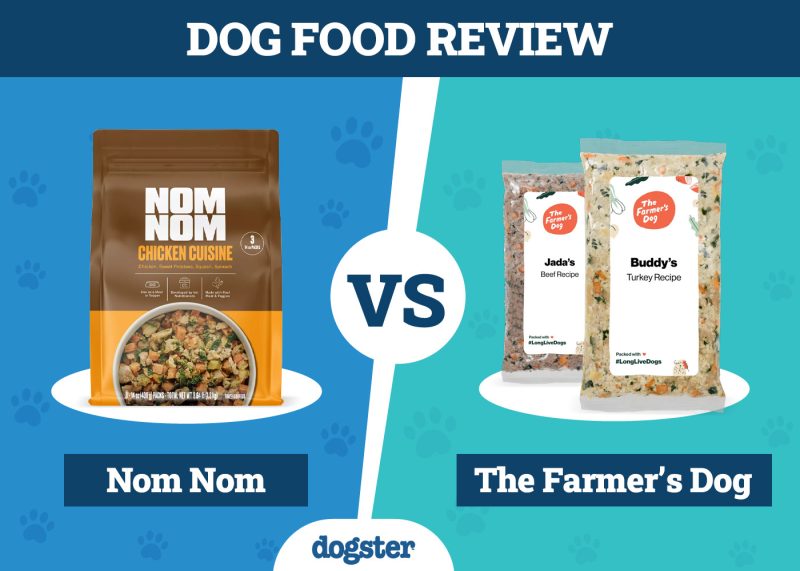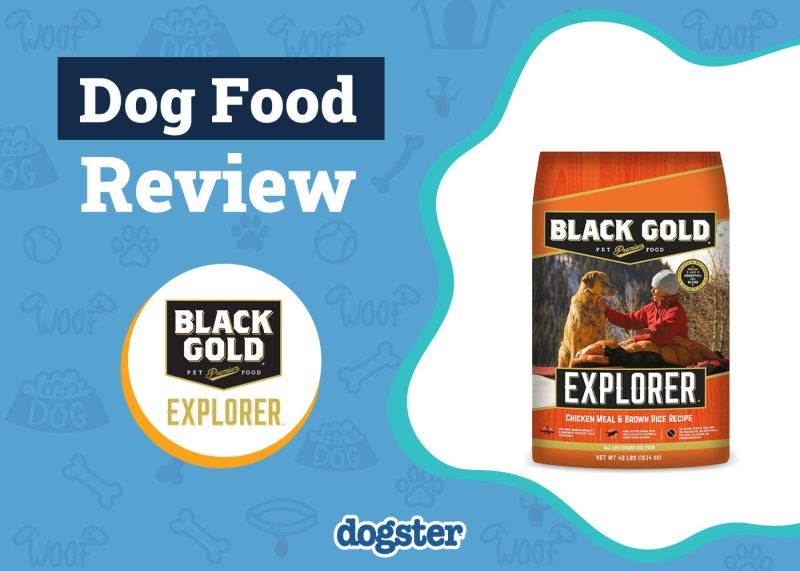In this article
Cheesecake has been the object of our collective sweet tooth for over 4,000 years. It’s safe to say we love this dessert, so it’s not surprising some would want to share this tasty morsel with their canine BFF (though I find it hard to share mine with anyone!).
Cheesecake might not be toxic to dogs, depending on the ingredients; however, our advice falls into the same category that your doctor would probably tell you: only in moderation. However, we don’t recommend giving your dog cheesecake, because it is a highly sweetened, high-caloric treat, even if you do stick to a small amount.

Nutritional Facts About Cheesecake
We’ll start with the good news. A 100-gram serving of plain cheesecake is about 45.6% water. It also contains 5.5 grams of protein. The latter primarily comes from the eggs and cream cheese. The dessert has a smattering of other essential nutrients, such as vitamin A, potassium, and phosphorus. However, its nutritional value isn’t its strong suit—hardly a newsflash.
Let’s face it, cheesecake is generally consumed for its deliciousness, not its nutritional value; it’s not exactly a salad. Given the pleasure a mouthful can give to us, it’s not hugely surprising that we might be tempted to share it with our dogs. We must clarify one vital aspect of giving your pet people food; just because something isn’t bad for them, it doesn’t mean it’s good for them. Although cheesecake may not hurt your pet in most cases, it’s not an open invitation to cut your dog a slice.
High in Calories
One of the main reasons we don’t recommend giving your pup cheesecake is its fat and sugar content. The Association of American Feed Control Officials (AAFCO) suggested daily intake for adult dogs is a minimum of 13.8 grams, and the fat content in a single slice tops 22.5 grams, almost double this amount.
A high fat content combined with minimal activity is a recipe for obesity. To put it in context, the recommended daily intake for a 10-pound dog is 275 calories. A 100-gram serving of cheesecake contains 321 calories, far exceeding this figure while providing negligible nutritional value. Even a mere ounce has 91 calories. It’s enough to take moderation off the table.
There’s also the sugar content. The 100-gram serving has 6.18 grams. It could cause a spike in your dog’s blood sugar, followed by the inevitable crash. The DNA of our canine companions has evolved to allow these animals to digest glucose and starch better than their wild counterparts. Nevertheless, a blast of fat and sugar might overwhelm the digestive system of some pets.
- GI distress
- Abdominal pain
- Nausea
- Vomiting
- Loss of appetite
Another potential problem is pancreatitis, which can be caused by eating rich or fatty foods. The signs of pancreatitis can be similar to those of gastrointestinal distress but are usually accompanied by a lack of appetite, lethargy, and abdominal pain. If your dog is experiencing any of these signs, it’s off to the vet for you.
If you need to speak with a vet but can't get to one, head over to PangoVet. It's our online service where you can talk to a vet online and get the advice you need for your pet — all at an affordable price!
Other Red Flags
We’ve been discussing plain cheesecake. However, the number of flavors is probably only limited by your imagination. Depending on the recipe, you might find the usual suspects, like chocolate, raisins, and macadamia nuts. However, other problematic ingredients may also exist in some desserts.
Xylitol is a sweetener often used in baked goods advertised as “sugar-free”. Even in tiny amounts, it can cause seizures, liver damage, and death.
All these things don’t factor in the chances of a food allergy or intolerance to any ingredients in the cheesecake. While these conditions can cause GI problems, they can also lead to itchy skin.
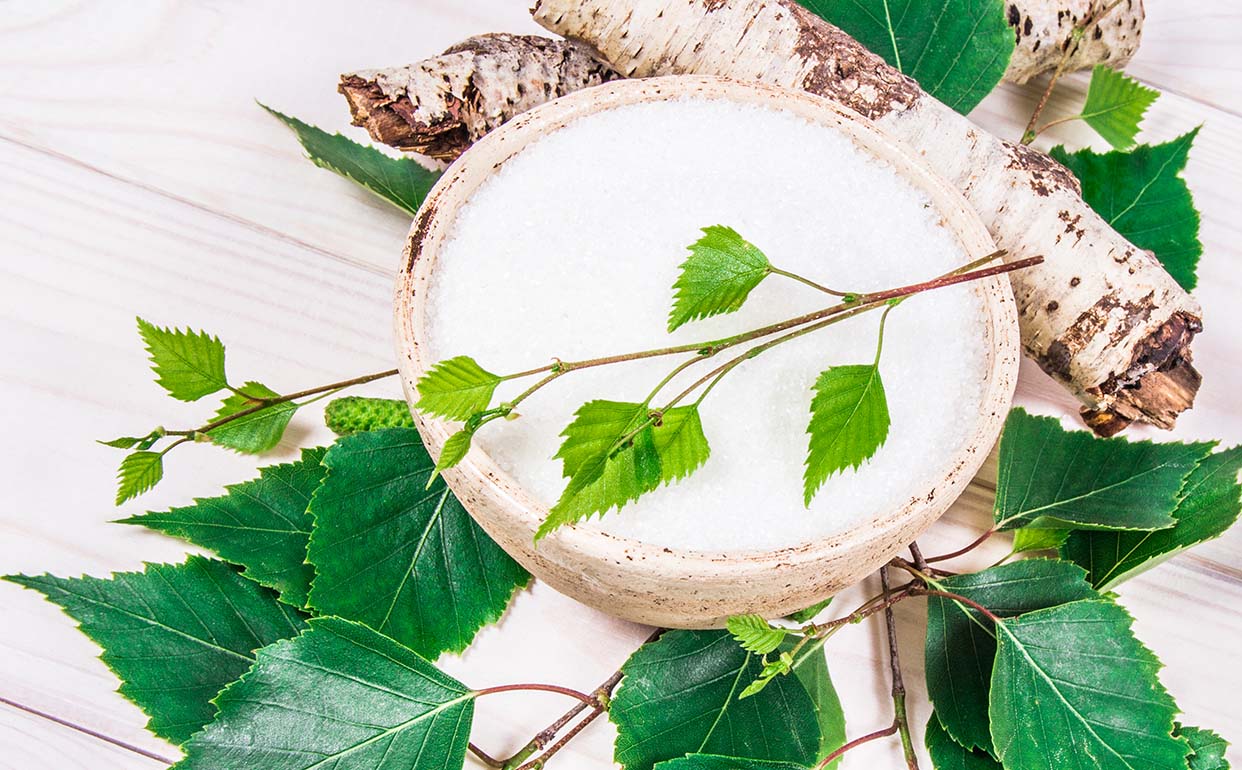

Final Thoughts
As much as you may enjoy cheesecake, we don’t recommend giving it to your dog. The red flags far outweigh the negligible health benefits. Of course, obesity prevention is a significant driver and a dealbreaker in our book. So while a sliver of cheesecake may not necessarily harm your pup, it’s certainly not going to benefit them.
See Also:
- Can Dogs Eat Cornstarch? Vet Approved Nutrition Guide & FAQ
-
Can Dogs Have Snow Cones? Vet-Approved Health & Nutrition Facts
Featured Image Credit: Vladislav Noseek, Shutterstock
